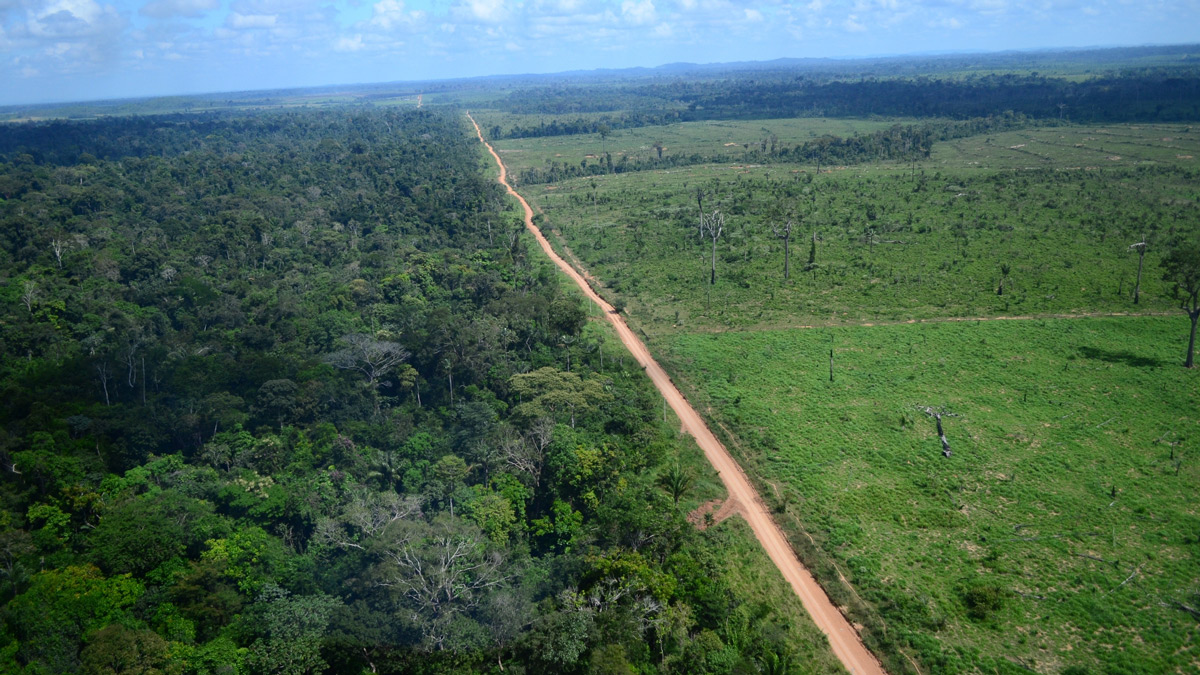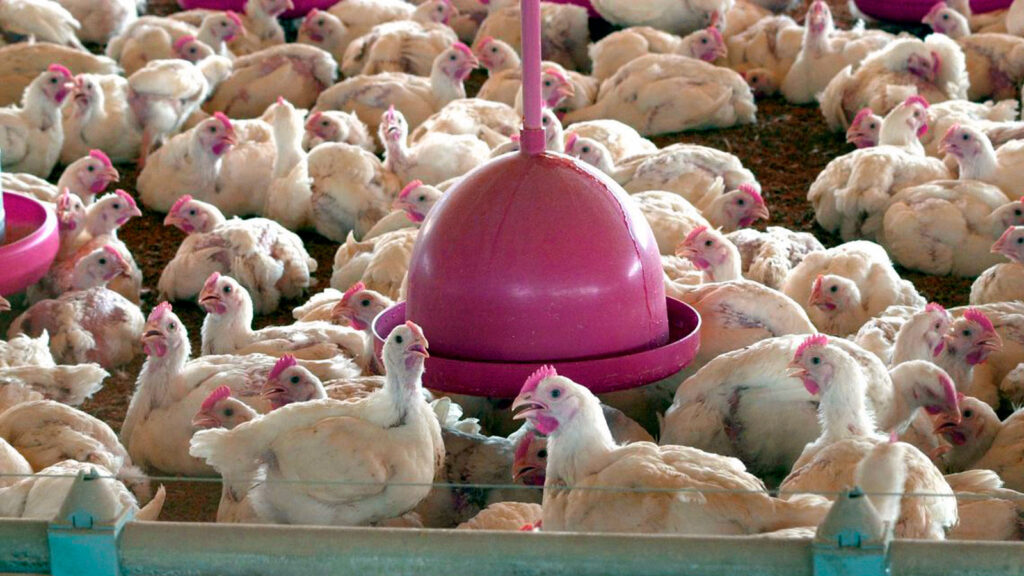A 24.7-million-real fine was not enough for JBS to stop buying cattle from companies that contribute to destroy the Amazon. Despite being punished by Operation Cold Meat for illegal practices in 2017, the company that owns the Friboi, Seara and Swift brands continues sourcing cattle from farms involved in deforestation, according to a joint investigation by Brazilian news agency Repórter Brasil, British newspaper The Guardian and The Bureau of Investigative Journalism.
The reporters were in São Félix do Xingu, in south-eastern Pará, and found cattle being raised in a deforested area embargoed by IBAMA – which is an environmental crime. The area is part of the Lagoa do Triunfo ranch, which has been fined for illegal deforestation and is part of the Agro SB group, formerly known as Santa Bárbara Xinguara and controlled by banker Daniel Dantas. Agro SB is a traditional supplier of JBS.
In addition, the investigation also confirmed that, last year, Lagoa do Triunfo transferred hundreds of cattle to another ranch belonging to the same business group but which had no environmental liability. Then the cattle were sold for slaughter at JBS’s meatpacking units.
By buying these animals, JBS breaches a Conduct Adjustment Agreement (TAC) signed 10 years ago with Federal Prosecutors in which it pledged to buy cattle only from farms that do not engage in environmental crimes. The company controlled by brothers Wesley and Joesley Batista also disregards what it told Repórter Brasil and The Guardian after Operation Cold Meat – that it had stopped buying cattle from ‘all ranches related’ to the Santa Bárbara Xinguara group (Agro SB).

This is not the first time that JBS supplier Agro SB is involved in environmental or labour law violations. In 2012, a ranch belonging to the group was caught using labour ‘analogous to slavery’. A worker has been reported murdered inside a ranch belonging to the group – allegedly for demanding his labour rights – and Prosecutors are investigating the company for land grabbing. Agro SB’s environmental history of is also bad. In Lagoa do Triunfo alone, the group has been fined 70.4 million reais by IBAMA for illegal deforestation in the last 10 years.
A Lagoa do Triunfo employee said he was aware of noncompliance with environmental regulations, as he knew that cattle grazed in embargoed areas. ‘We can’t cut the vegetation’ [in embargoed areas], said the employee whose name will not be revealed to avoid retaliation. ‘The vegetation grows and then we work with the cattle inside them.’
The embargoes are imposed by IBAMA as a measure to recover deforested areas – therefore, any economic activity is banned in the land. They also serve as punishment to ranchers who do not comply with the law, since they often fail to pay environmental fines. Any economic activity in areas under embargo is subject to fines of up to 1 million reais, according to Presidential Decree 6514 of 2008.
Triangulation between ranches
More than an environmental crime, raising cattle in areas under embargo reveals a scheme that consists of livestock relocations amongst different ranchs in order to obscure the true origin of the cattle. The cattle grow in an embargoed area, then they are sent to a ‘clean’ ranch without environmental liabilities, from where they will be sold to meatpacking companies.
Public documents on animal transportation consulted by the reporters reveal that, between January and October of last year, Agro SB transferred at least 296 cattle from the Lagoa do Triunfo ranch to the Espírito Santo ranch, which it also owns. At the same time, Espírito Santo sold at least 1,977 cattle from July to December to two JBS meatpacking units in the state of Pará. Other consignments were made by Espírito Santo in January 2019, when 936 cattle were sold to JBS’s meatpacking unit in Redenção.

Transferring cattle from one ranch to another for fattening is common practice in the industry, but it makes it difficult for companies to monitor their indirect suppliers and keep their commitments not to source cattle from farms involved in deforestation.
A JBS statement said that ‘the facts pointed out do not meet the standards’ adopted by the company. It stated that it does not purchase animals from ranches involved in deforestation, invasion of indigenous lands, agrarian conflicts and labour ‘analogous to slavery’, or which are under embargo by IBAMA.
The company also says it works with Federal Prosecutors ‘to regulate the industry on the issue of illegal deforestation’. For more than a decade, meatpacking companies and state agencies have been communicating to find ways to monitor indirect suppliers or those practicing ‘laundering’, but they have not yet found a definitive solution.
Audit firm DNV.GL, hired by JBS, found that the company ‘does no systematic monitoring’ on its indirect suppliers but points out that cattle purchases were regular in 99.99% of the cases it assessed, according to a report published in October 2018. Read JBS’s full response here in Portuguese.
Agro SB said in a statement that ‘there is no irregularity in the trading/transfer of livestock from the Lagoa do Triunfo ranch’ since its ranches are divided into breeding, fattening and rearing facilities. The company said that it bought Lagoa do Triunfo in 2008 and that it ‘has never cut any vegetation in the property’.
However, the embargoed area where the reporters found cattle grazing was fined 4.53 million reais by IBAMA for deforestation on November 10, 2010.

The area was embargoed about 1 month later – when Agro SB had already purchased the ranch. In addition, satellite monitoring by Global Forest Watch shows that it lost 796 hectares of native vegetation between 2009 and 2018.
Agro SB did not respond to questions about the presence of cattle grazing in that location. The company also denies having used slave labour and claims it is unaware of the land grabbing investigation by Prosecutor’s Office. (Read the company’s full statement here in Portuguese).
Forest Turning into Pasture
JBS is one of the companies accused by Swedish consultancy TRASE (Transparent Production Chains for Sustainable Economies) of being complicit in deforesting the Amazon. The multinational company is the world’s largest producer of animal protein and it slaughters nearly 35,000 cattle per day in Brazil alone. It is responsible for destroying between 28,000 and 32,000 hectares of forest per year to export meat, according to data compiled by TRASE and provided exclusively to this report. These figures do not include production meant for Brazil’s domestic market.
In the whole Amazon region, an area the size of Brasilia (580,000 hectares of forest) is deforested annually to be converted into pasture for livestock, according to TRASE.

Besides having the largest number of cattle in Brazil – 18 animals per resident – São Félix do Xingu also has the third largest deforested area in the Amazon, after Altamira and Porto Velho, according to the National Institute of Space Research (INPE).
Until the late 1970s, São Félix do Xingu used to be a fishing village by the Xingu River. The arrival of miners and loggers triggered the deforestation cycle later consolidated by livestock. The number of animals in town grew exponentially. They were 91 in 1977 and 217,000 twenty years later, until they reached today’s 2.2 million, according to IBGE data for 2017.
One of the main attractions in a cattle town is horse racing. Ranchers are gathered at the Negão Horse Club on a Saturday afternoon in early June. Some of them show off 100-real-bills for informal bets. The official betting bank accumulated 200,000 reais on that day.

Arlindo Rosa and Francisco Torres are authorities there. President and vice-president of the Rural Producers’ Association of São Félix do Xingu respectively, they voice ranchers’ – and President Jair Bolsonaro’s – views against environmental controls.
‘Some fines will never be paid. They [Ibama’s inspectors] apply them without hesitating’, says Rosa, who has already been fined four times for deforestation, in a total of 5.6 million reais.
The two association leaders estimate that 90% of properties in São Felix do Xingu include areas embargoed by IBAMA for deforestation. Ranchers’ complain that even a small area embargoed in a huge farm, for instance, prevents producers from selling to meatpacking companies. ‘We are having a hard time selling our cattle because the companies won’t buy from embargoed areas’, Rosa acknowledges.
However, their math does not add up. While they estimate that a large part of producers in São Félix do Xingu cannot sell to meatpacking companies because of environmental problems, they readily list the slaughterhouses that buy livestock from local ranches. Another destination, according to Rosa, is the international market: ‘Lots of cattle leave this town in ships. We wouldn’t make it without exports’.
With or without embargoes, in the town with the largest number of cattle in Brazil, the local popular saying seems to make sense: “Oxen don’t die of old age”.

